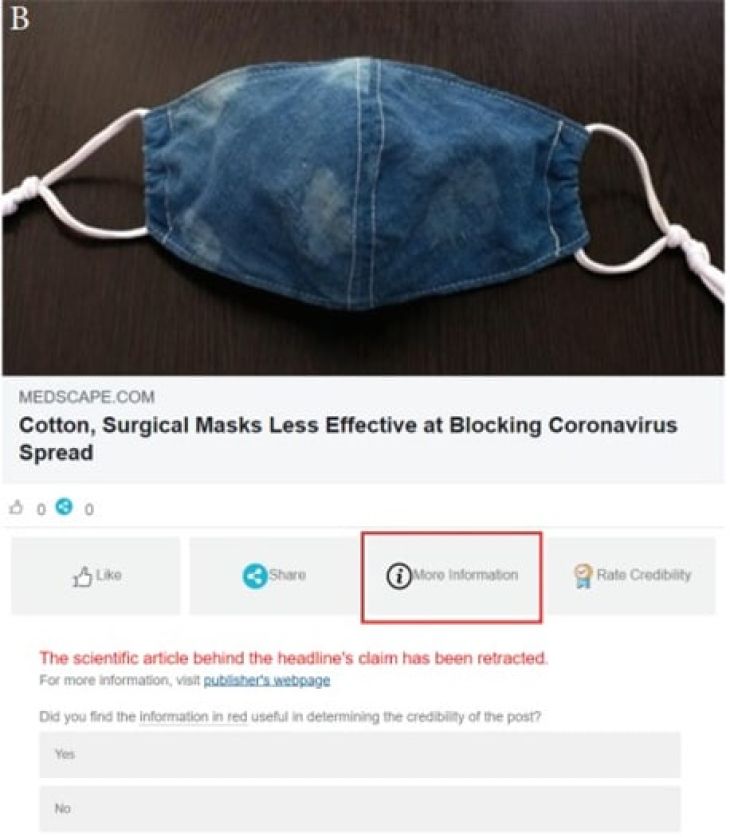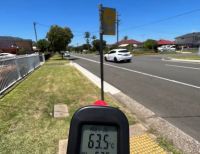
In 1998, a paper linking childhood vaccines with autism was published in prestigious journal, The Lancet, only to be retracted in 2010 when the science was debunked.
Fourteen years since its retraction, the paper’s original claim continues to flourish on social media, fuelling misinformation and disinformation around vaccine safety and efficacy.
A University of Sydney team is hoping to help social media users identify posts featuring misinformation and disinformation arising from now-debunked science. They have developed and tested a new interface that helps users discover further information about potentially fraught claims on social media.
They created and tested the efficacy of adding a “more information” button to social media posts. The button links to a drop down which allows users to see more details about claims or information in news posts, including information on whether that news is based on retracted science. The reseachers say social media platforms could use an algorithm to link posts to details of retracted science.
Testing of the interface among a group of participants showed that when people understand the idea of retraction and can easily find when health news is based on a claim from retracted research, it can help reduce the impact and spread of misinformation as they are less likely to share it.
“Knowledge is power,” said Professor Judy Kay from the School of Computer Science who led the research. “During the height of the COVID-19 pandemic, myths around the efficacy and safety of vaccines abounded. We want to help people to better understand when science has been debunked or challenged so they can make informed decisions about their health,” she said.
“The ability to read and properly interpret often complex scientific papers is a very niche skill – not everybody has that literacy or is up to date on the latest science. Many people would have seen posts about now-debunked vaccine research and thought: ‘it was published in a medical journal, so it must be true’. Sadly, that isn’t the case for retracted publications.”
“Social media platforms could do much better than they do now,” said co-author and PhD student Waheeb Yaqub. “During the height of the COVID-19 pandemic, myths around the efficacy and safety of vaccines spread like wildfire.”
“Our approach shows that when people understand the idea of retraction and can find when health news is based on a retracted science article, it can reduce the impact and spread of misinformation,” he said.
















